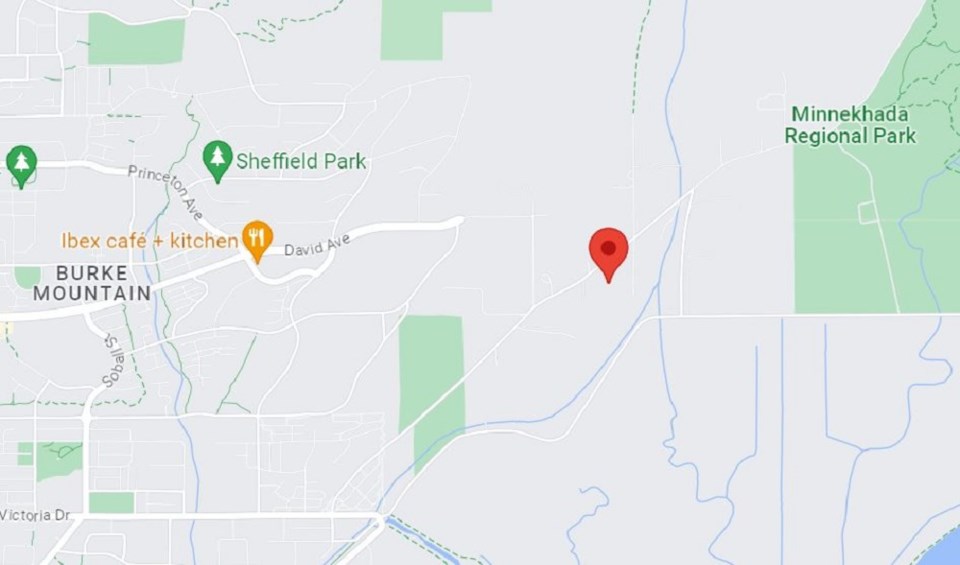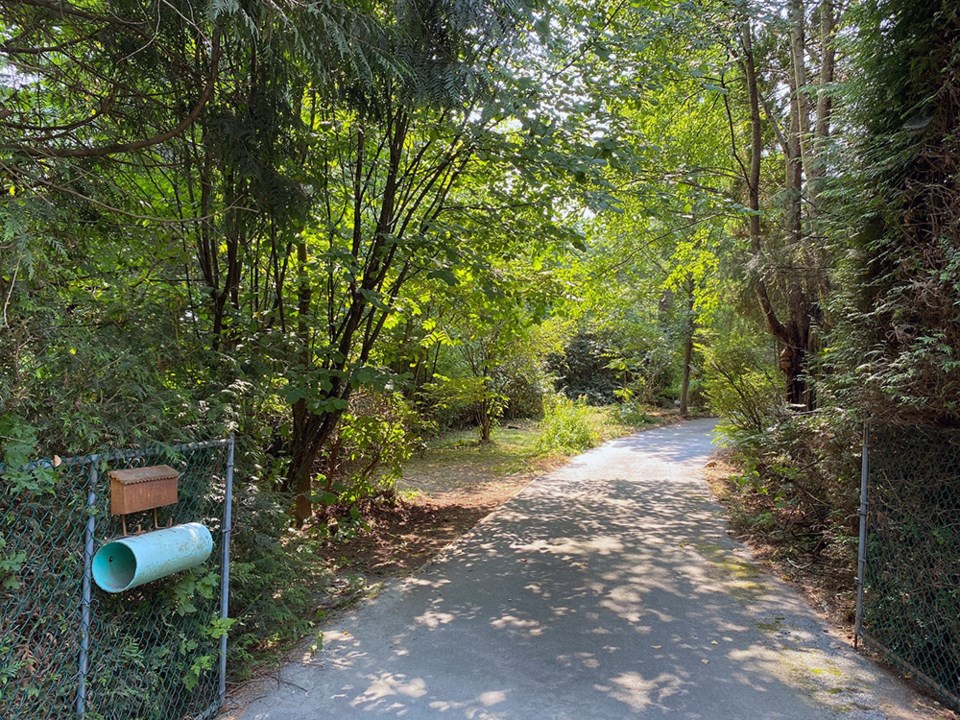A property for sale in the growing community of will have appeal to many buyers.
It's a large, 1.8-acre piece of land, with lots of tall, stately trees, located just down the street from a new .
, the Coquitlam property, located at , would be a dream for anyone wishing to put new homes on it.
The catch?
You can't re-develop the property because there is a restrictive covenant on it, through a non-profit, charitable land trust.
Long-time owner, Steve Vida, who has died, filed the covenant with the in 2005, after trying to get someone to preserve his property, home to birds, a small man-made pond, and "significant" trees, including Douglas firs, cedar and maple.
With the conservation covenant, the TLC has the right to enter the property and inspect the land, and the covenant prevents an owner from changes that would alter the habitat.
Vida, who lived on the property he acquired in 1968 with his wife, Donna, had been looking for a way to preserve the trees and the birds on the property in a neighbourhood slated for development.
"He wanted the land to be kept in its natural state, mostly for the birds — he loved all the birds," said Cathy Armstrong, TLC executive director.
Vida so loved the birds, he put up bird feeders all over his property, which he kept filled with 40-pound bags of black sunflower seeds he purchased every two weeks.
Save money on taxes
The TLC holds covenants on title to 248 properties in B.C. and there are distinct advantages to owning a property with such a covenant, Armstrong told the Tri-City News.
For example, you can apply to have the property assessed at the lower value and pay lower taxes and get a charitable tax receipt for the devaluation.
"It's like getting farm status, you've devalued your property by this measure," said Armstrong.
According to the Victoria Drive property dropped to its current listed price of $875,000 in 2022 from nearly $1.8 million in 2021.
Armstrong said several people interested in the property have reached out to the TLC seeking more information and she hopes the eventual purchaser will reach out once the sale is complete.
"I think there's multiple offers already on the table; it will be sold on the weekend," Armstrong predicted.
Those who acquire the land can work with the TLC to renovate or replace a home on the property.
However, they can't encroach on the natural habitat.

Armstrong said an agreement is usually reached through negotiation although the covenant allows TLC to levy a penalty, in the event of damage.
Penalties, also called a rent charge, can be costly.
Armstrong said one landowner to pay a penalty of $277,000 after trees were cut by a neighbour to improve a view; it was up to the property owner to get the money from his neighbour.
However, in most cases such encroachment is by accident and a settlement to recoup costs for mitigation is reached through collaboration.
"It gives us a financial mechanism to go after them for that breach," Armstrong said.
Urban properties protected by covenant are rare
Still, it's rare for a property in the Lower Mainland to have a conservation covenant on it, Armstrong said, there are only about two or three in the Lower Mainland, making Vida's proerty a green oasis amidst urbanization, and a bulwark amidst the rapidly developing .
However, its proximity to development is one of the reasons there was a court challenge against the covenant in 2020.
Vida was named as the petitioner, in the who sought to have the covenant removed because of changes in the neighbourhood that could make the property less effective for bird habitat.
However, in her judgement, Justice Julianne Lamb stated that the property continued to be an "important refuge from the pressures of urbanization.”
“A variety of bird species continue to frequent the Property to visit the bird feeders and to build nests in the forest. The forest offers sanctuary and nourishment to small mammals and amphibians.”
Today, Armstrong remembers Vida as an enthusiastic bird-lover who didn't seem upset the TLC won the case, even though the family had to pay costs.
In a visit after the court judgement, Vida, who was 95 years old and hard of hearing but could communicate with a white board, just "smiled" when Armstrong asked him if he had any concerns.
"He just wanted the best for the wildlife and now we are here to be his voice."


